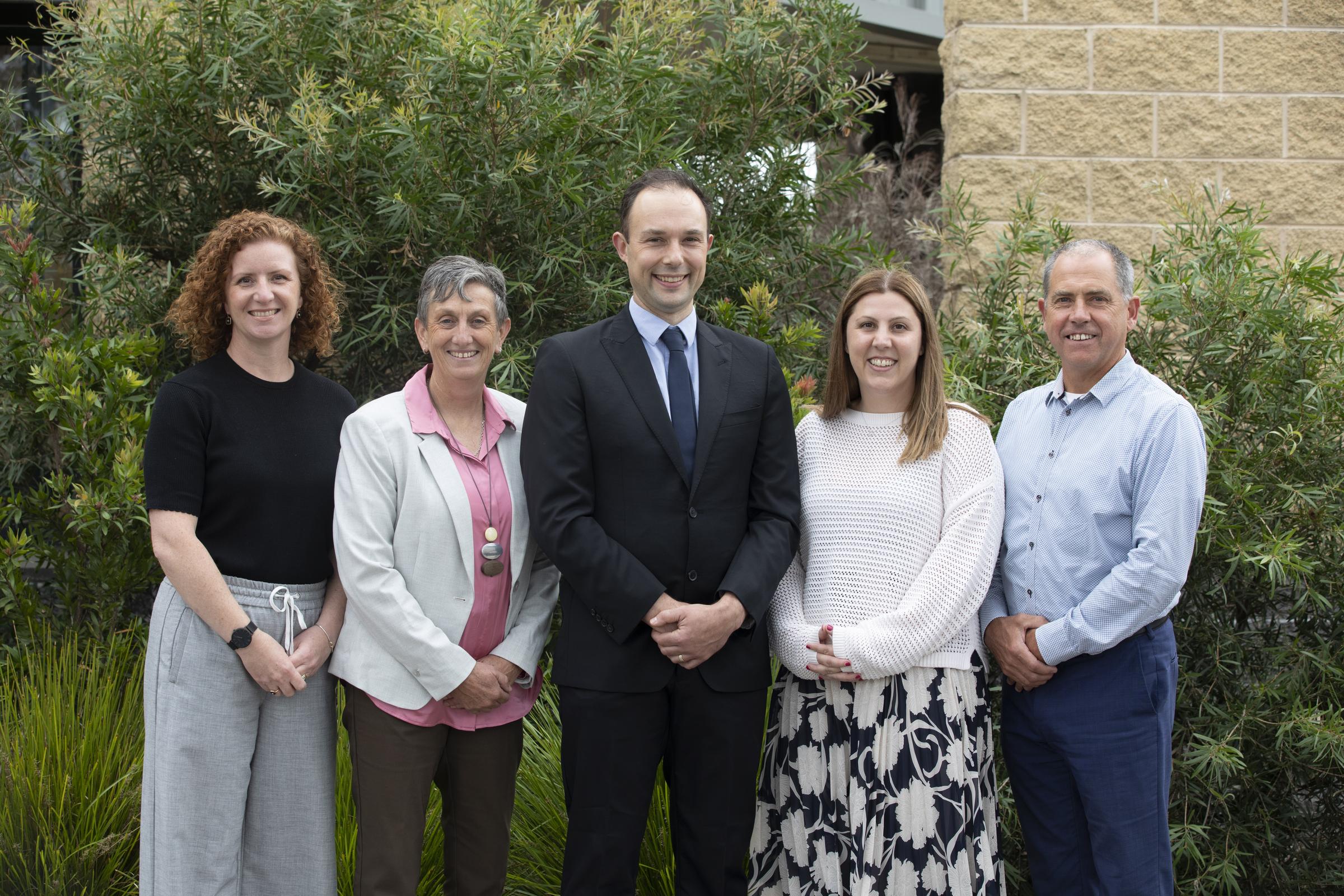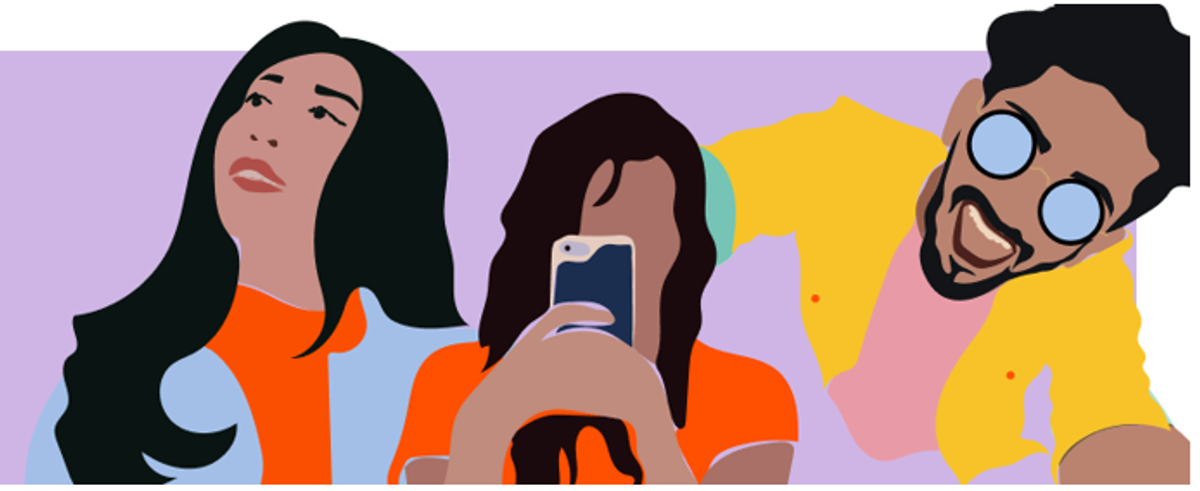Assistant Principals' Report
Leadership Team (Pictured left to right): Gina Carroll, Belinda McGee, Glenn Morris, Elisha Sadikay and Gary Rule)

Assistant Principals' Report
Leadership Team (Pictured left to right): Gina Carroll, Belinda McGee, Glenn Morris, Elisha Sadikay and Gary Rule)
ReachOut is one of my favourite go-to websites when I’m looking for the latest information about the best ways to look after teenagers. All of the information is based on the latest evidence and is designed with experts, and young people or their parents. ReachOut is a free service that’s available anytime.


ReachOut Parents has partnered with Instagram Australia to support parents to help their teens to stay safe and happy on social media. Information covered in the guide includes:
The guide is free and can be download here.
Belinda McGee
Assistant Principal
Doncaster Secondary College understands that people who have a positive sense of their wellbeing are more engaged learners, caring citizens and thriving people.
The Doncaster Secondary College community (school leaders, staff, students, families and volunteers) is a place where everyone can be empowered to care for the needs of others and when a situation is beyond their capacity they have an understanding of who they can seek support from. We work together and learn together.
Schools are fundamentally educational institutions and our role in wellbeing is largely focused on equipping students with the knowledge, skills and disposition for lifelong resilience, as well as providing a safe and inclusive environment that fosters learning.
As an educational institution, we can support our learners to develop positive wellbeing by:
Schools are not equipped to support students with long-term therapeutic interventions. We can offer time-limited counselling focusing on building a student’s Personal and Social Capabilities to support engagement with learning.
Parents and carers are encouraged to seek external counselling or psychological support if you believe your child requires therapeutic intervention to deal with a mental health concern.
Consent
The Student Wellbeing Team is available upon referral for time-limited counselling generally focusing on developing a learner’s Personal and Social Capabilities. Counselling is provided through our wellbeing placement students program and employed counselling, social work and youth work staff.
If a student is referred to the Student Wellbeing Team for a counselling intervention, the school will seek consent for this intervention from both the student and the student’s parent/carer, except where there is a concern for student safety in seeking this consent.
This consent will be sought via a Compass Event, although often a phone call will be made home to discuss the students’ needs and involve the family in decision-making.
Participation in universal teaching and learning programs or cohort-based prevention programs is generally considered a part of the school’s educational program and does not require consent. In addition, members of the Student Wellbeing Team may support the Sub-Schools in promoting engagement and attendance, as well as acting restoratively when students are removed from class or suspended. This support generally does not require consent as it is not considered a counselling intervention, although the Sub-Schools will generally communicate with parents and carers in these instances order to work collaboratively and support the learner to embrace more positive social behaviours.
Students can contact Wellbeing Team by:
National and International Research shows that positive and inclusive school environments lead to improved academic results, increased confidence and better attendance at school. All young people have a right to feel safe at school and to engage in learning, but many young people who identify as LGBTI have negative experiences at Australian schools.
At Doncaster Secondary College, we recognise that studies around the world show that LGBTI students experience higher rates of harassment, social exclusion and bulling than their non-LGBTI peers. We are committed to ensuring that all of our students feel safe in their school, as well as teaching our students to feel empathy and embrace diverse perspectives. It is unlawful to discriminate against a person on the grounds of their sexual orientation, gender identity or intersex status, and we are taking positive steps to create safe and inclusive environment for our LGBTI students.
One of these steps is the establishment of the Rainbow Collective: an allyship group for LGBTQIA+ students that acts as a safe space to speak about LGBTQIA+ topics, connect with the community and make friends.
More information on this collective can be found on posters around the school, at the Wellbeing Hub and J7.
This group met recently and explored their vision for the Rainbow Collective in our school. They imagined a space where more people came to meetings to show support, including students, teachers and school leaders. They hoped to see awareness raised in school assemblies, and are planning for more structure in their weekly meetings.
One of the most important key messages to come from this group was their sincere desire to be treated fairly and respectfully. We’re really proud of our students for the effort they have put in to establishing this allyship group and are looking forward to learning more from them and watching them grow.
Elisha Sadikay
Assistant Principal